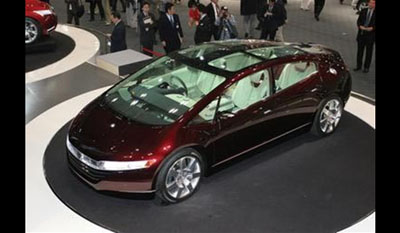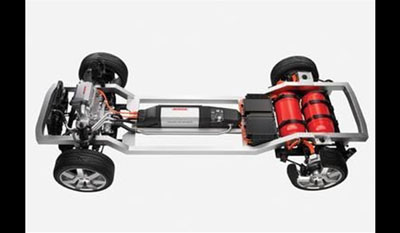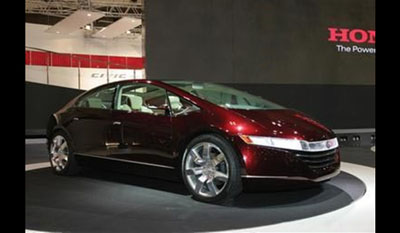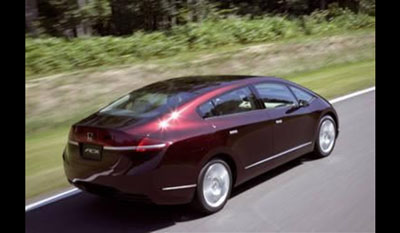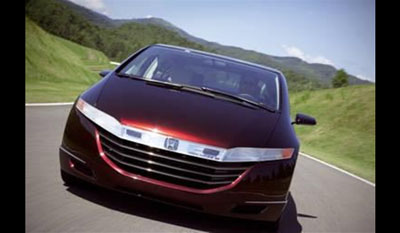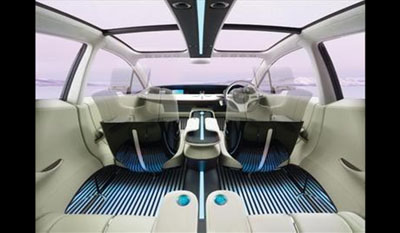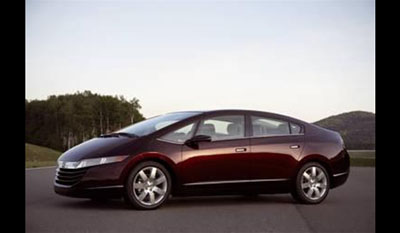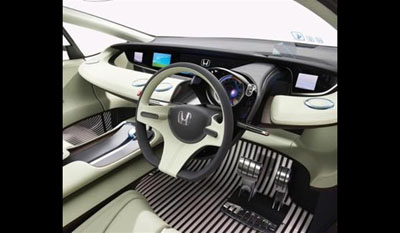Honda Hydrogen Fuel Cell FCX Concept 2005
Starting in the early 1980s, Honda have been involved in research and development for hydrogen fuel cell automobile aiming at a technology alternative to the gasoline and diesel engine propulsion. A hydrogen fuel cell automobile is an electric driven car where electricity is generated by an electrochemical reaction involving hydrogen and oxygen (air) . The fuel cell is the electricity generator and the reaction only generates water as exhaust element. The real challenge is that hydrogen must be produced, transported and distributed. Honda is working on the development of its own fuel cell technology as well as the electric motor or the ultracapacitor aimed at storing the electricity from the fuel cell and from energy recovery from braking. In 2001, Honda started development of a small sedan with hydrogen fuel cell that was certified for road use in Japan and in the USA; Starting from 2003 several limited production models were put on daily use in Japan and Southern California in view of accumulating experiences in real life driving conditions. Further development of the systems allowed by 2004 the possibility for cold start at up to -20°C.
Honda has also been developing hydrogen distribution stations where the hydrogen is generated from solar cells and electric power grid. In 2005, Honda introduced the FCX Concept at the Tokyo Motor Show. This concept has been transformed into a running prototype that starting September 2006 is undergoing on road developments. Limited marketing of this totally new fuel cell vehicule is scheduled to begin in 2008 in Japan and the USA. Specifications: fuel cell stack power output 100 kW, starting temperature possible at -30°C, top speed 160 km/h, vehicule range 570 km dimensions : lenght 476 cm, width 186 cm, height 145 cm energy storage lithium ion batteries, hydrogen storage 171 l at 350 atmosphere Honda Hydrogen Fuel Cell FCX Concept 2005 Wallpapers
Honda FCX Concept 2005 : Related reviews
|
|||||||||||||||||||||||||||||||||
|---|---|---|---|---|---|---|---|---|---|---|---|---|---|---|---|---|---|---|---|---|---|---|---|---|---|---|---|---|---|---|---|---|---|
|
||||||||||||||||||||||||||








